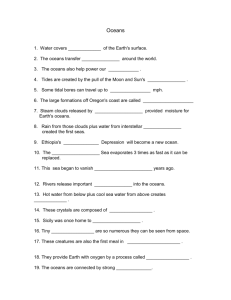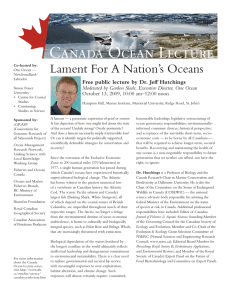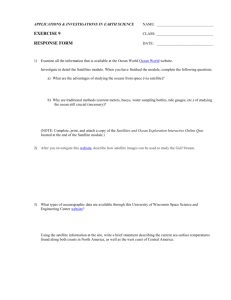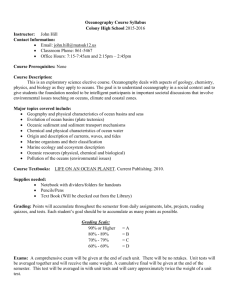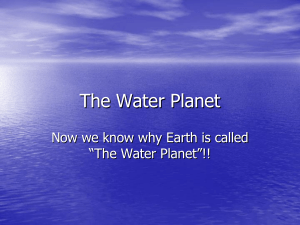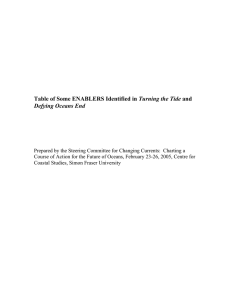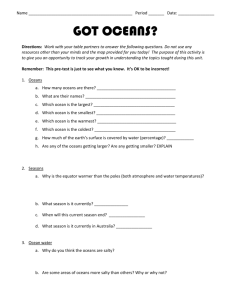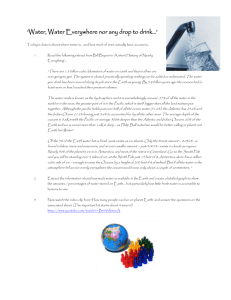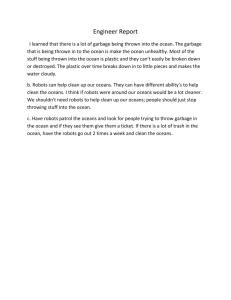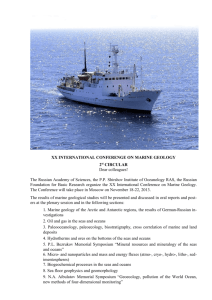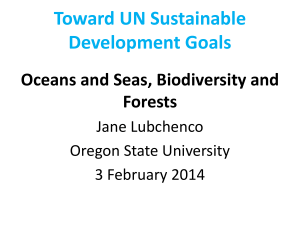Eighth Session of the Open Working Group (OWG)
advertisement
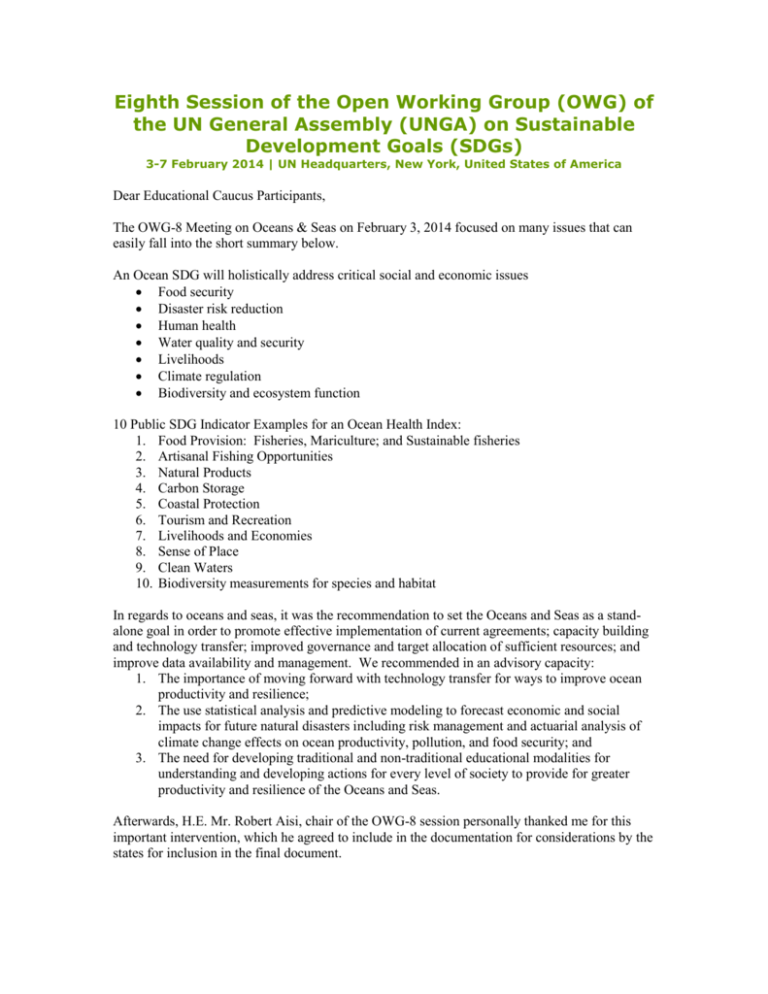
Eighth Session of the Open Working Group (OWG) of the UN General Assembly (UNGA) on Sustainable Development Goals (SDGs) 3-7 February 2014 | UN Headquarters, New York, United States of America Dear Educational Caucus Participants, The OWG-8 Meeting on Oceans & Seas on February 3, 2014 focused on many issues that can easily fall into the short summary below. An Ocean SDG will holistically address critical social and economic issues Food security Disaster risk reduction Human health Water quality and security Livelihoods Climate regulation Biodiversity and ecosystem function 10 Public SDG Indicator Examples for an Ocean Health Index: 1. Food Provision: Fisheries, Mariculture; and Sustainable fisheries 2. Artisanal Fishing Opportunities 3. Natural Products 4. Carbon Storage 5. Coastal Protection 6. Tourism and Recreation 7. Livelihoods and Economies 8. Sense of Place 9. Clean Waters 10. Biodiversity measurements for species and habitat In regards to oceans and seas, it was the recommendation to set the Oceans and Seas as a standalone goal in order to promote effective implementation of current agreements; capacity building and technology transfer; improved governance and target allocation of sufficient resources; and improve data availability and management. We recommended in an advisory capacity: 1. The importance of moving forward with technology transfer for ways to improve ocean productivity and resilience; 2. The use statistical analysis and predictive modeling to forecast economic and social impacts for future natural disasters including risk management and actuarial analysis of climate change effects on ocean productivity, pollution, and food security; and 3. The need for developing traditional and non-traditional educational modalities for understanding and developing actions for every level of society to provide for greater productivity and resilience of the Oceans and Seas. Afterwards, H.E. Mr. Robert Aisi, chair of the OWG-8 session personally thanked me for this important intervention, which he agreed to include in the documentation for considerations by the states for inclusion in the final document. We conclude our report as follows: Climate change has had a significant impact upon the world’s oceans, including changes in weather patterns, ocean ecosystems, human health and disease, and fisheries. However actions can be taken to positively affect these situations: such as sustainable management of fisheries, improved energy efficiency individually and corporately, judicious land-use, public education programs, and thorough research and data collection including modeling and practical applications. Application of ocean engineering solutions can aid the resiliency of land-ocean ecosystem productivity through improved fertilizer content design (recommended or regulated), aquaculture guidelines, coastal restoration policies, and wastewater treatment parameters. Oceanic health can be improved increasing productivity for coastal communities to achieve food and ecosystem security and contribute to the global knowledge of the ocean with carefully regulated carbon dioxide offsets being an important financial tool to make the process sustainable. Engagement at every level of society is needed to lead the way towards a sustainable and profitable future. Sincerely yours in conservation and education, Leonard Sonnenschein President, World Aquarium and Conservation for the Oceans Foundation Chair, UNSD Education Caucus Working Group for the Oceans 701 North 15th Street, 2nd Floor St. Louis, Missouri 63103 USA office: 314-647-6011 fax: 314-647-7874 mobile: 314-609-2798 web sites: www.worldaquarium.org www.CFTO.org
